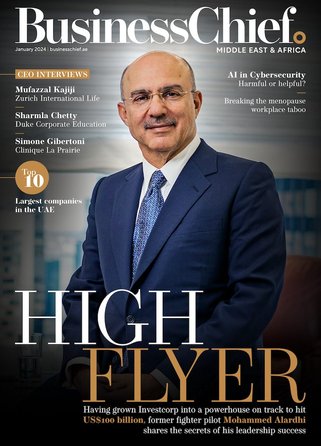Why executive education is more important than ever

As the business world transforms, the significance of executive education has become increasingly vital.
The accelerated pace of change, emerging technologies, and new demands in today’s business environment – from cybersecurity to climate change – means leaders must understand and incorporate these into their business strategies, organisations and processes.
And that means going back to school.
Leaders in executive and functional roles at all levels are engaging more intensively than ever in executive education programmes to ensure they stay up to speed on the latest business implications and opportunities – and also, have the skills to lead.
Valued at US$42.6 billion in 2022, global executive education is expected to grow at a significant CAGR of 10.8% through 2030 – with growing demand from both organisations and individuals.
Middle East undergoing rapid change
This is especially true in Middle East markets, crucially the GCC region, where transformation is undergoing rapid transformation. With economies here looking to diversify and grow their private private-sector workforces, the need to arm executives and future leaders with the skills and knowledge to lead the transition of the region into a digital, knowledge-based economy grows ever greater.
As Director of Executive Education at NYU Abu Dhabi, Sami Mahroum is seeing a surge in demand for executive education in the region, both from individuals and corporate clients.
A renowned expert in innovation, policy, and education, Mahroum has worked at numerous prestigious organisations including INSEAD, the OECD and Nesta – where he was an educator, researcher, advisor and thought leader on issues shaping the future of innovation and public policy.
“There is an economic boom in the region,” says Sami, whose role is to ensure that NYU Abu Dhabi continues to be an important conduit of knowledge transfer from academic to industry and society at large.
Sami points to "competition and rapid transformation" as triggers for the surge in executive education growth. “These are the two headlines of the times we are in,” Sami tells Business Chief. “It is enough to be busy and preoccupied with a task for two weeks before you start to feel the world has moved on and you need to catch up.
"There is growing competition in the labour market across political boundaries. Any professional working in the region knows they are competing with the rest of the world to retain their job or get their next job. Language is not a barrier here with English being the lingua franca and work permits are easy to get once a job offer is made.”
It's not only individuals waking up to the value of executive education, but organisations too – many of which are “realising that to stay ahead, they need to empower their workers and also appear as employers who care about the success of their workers.”
With such corporate transformation, executive education has also undergone a huge shift – not just around content, but in approach and delivery too.
“The major change we have seen is the expansion of online and asynchronous learning,” Sami tells Business Chief.
While modularisation and short courses have been around for a while now, hybrid delivery methods and cross-offering between different institutions on single platforms has been on the rise, he says.
“Organisations now seek to tap into the expertise and specialities of multiple solution providers and not limit themselves to a few providers only. Universities and other executive education providers have recognised this change and have begun to explore opportunities to work together to provide a stronger and more comprehensive offering.”
Focused both on organisations and individual senior leaders, the Executive Education offering at NYU Abu Dhabi delivers practical tools and strategies to succeed in today' global business economy with programmes customised to meet specific needs and an offer that crosses a wide variety of specialisations, from leadership and innovation to critical thinking and coaching.
What makes the institution unique in the region and beyond is that it draws on all faculties and departments – from engineering to humanities to the social sciences – something that “allows us to be more responsive and work with a broad variety of stakeholders in society,” explains Sami.
They also offer access to a global community of scholars, researchers and alumni that span many countries and continents with 15 different locations around the world and 20 different schools.
Arabic language tuition remains important in the region but according to Sami has not yet reached its full potential. “We are working on this at NYU AD too and will be offering ExEd in Arabic,” he says.
Finally, Sami points to a growing demand for everything AI and ESG-related and believes that content focused around sustainability is only going to grow more – and faster in the region, especially with COP28 taking place in the UAE.
“But leadership and coaching remain strong areas of demand too. Executives want to stay ahead, be informed, ready and prepared for the future. The future is no longer something that happens many years from now, but it is seen as something that is around the corner, something that is imminent.”
Featured Articles
SAP has announced it has appointed a new President for a newly-created EMEA region, aiming to make the most of the opportunities of cloud and AI
technology
From fighter pilot to fashion house financier, Mohammed Alardhi has taken Investcorp to great heights – so what’s the secret to his success?
Dr Omar Al-Attas, Head of Environmental Protection and Regeneration at Red Sea Global, shares his COP28 hopes and approach to regenerative tourism
strategy




